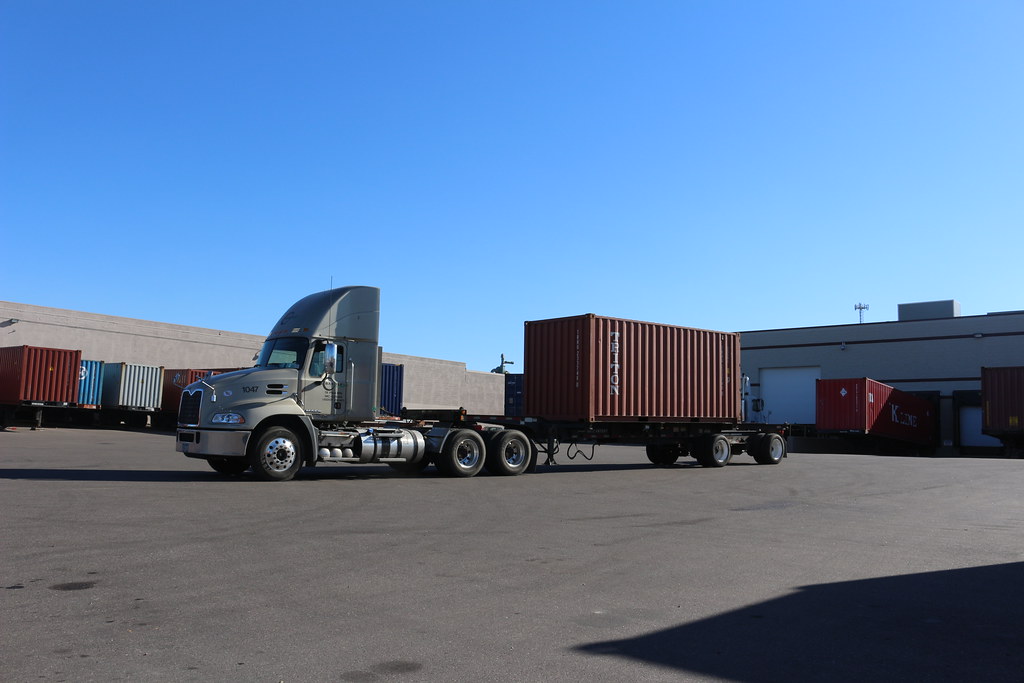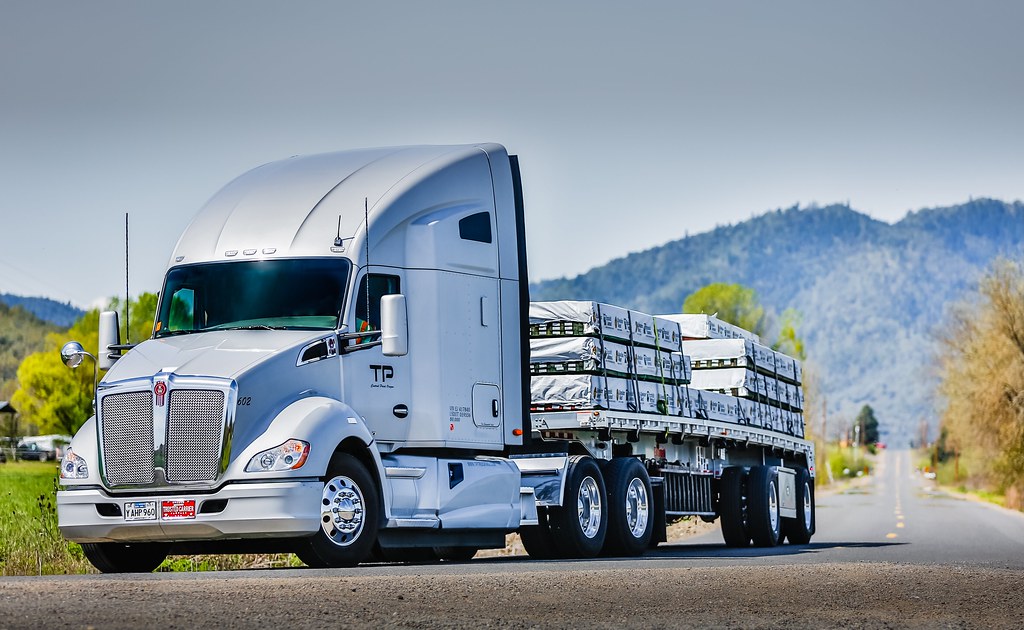As a trucking business owner, you understand the importance of effective marketing to attract and retain customers in a highly competitive industry. With the right strategies, you can promote your trucking business and increase your chances of success. In this article, we will provide you with expert tips and strategies to help you market your trucking business effectively.
Develop a Strong Brand Identity
Your brand identity is the foundation of your marketing efforts. It represents the personality, values, and image of your trucking business. A strong brand identity helps you stand out from the competition and creates a memorable impression on potential customers. When developing your brand identity, consider the following:

- Business name: Choose a name that is easy to remember, relevant to your services, and unique in your industry.
- Logo: Create a professional and eye-catching logo that visually represents your trucking business and can be easily recognized.
- Website: Design a website that aligns with your brand identity and provides comprehensive information about your services, rates, and contact details.
- Social media profiles: Consistently use your brand identity elements, such as your logo and colors, across all your social media profiles to create a cohesive brand image.
Create a Professional Website
In today’s digital age, having a professional website is crucial for any business, including trucking. Your website serves as a virtual storefront and provides potential customers with information about your services and how to contact you. To create a professional website, consider the following:
- Mobile-friendliness: Ensure that your website is optimized for mobile devices, as more and more people are using smartphones and tablets to search for services.
- Navigation: Make sure your website is easy to navigate, with clear menus, headings, and calls to action. Visitors should be able to find the information they need quickly and easily.
- Visual appeal: Use high-quality visuals, such as images and videos, that showcase your trucks, facilities, and services. Professional and visually appealing design can create a positive impression on potential customers.
- Clear calls to action: Include clear and prominent calls to action, such as “Request a Quote” or “Contact Us,” to encourage visitors to take action and contact you for inquiries or bookings.
Optimize Your Website for SEO
Search engine optimization (SEO) is the process of optimizing your website to rank higher in search engine results. Higher rankings can increase your visibility to potential customers and drive more organic traffic to your website. To optimize your website for SEO, consider the following:
- Keyword research: Conduct keyword research to identify the keywords that are relevant to your trucking services and have a high search volume. Use these keywords strategically in your website’s content, meta tags, and headings to improve your search engine rankings.
- High-quality content: Create informative and engaging content that provides value to your website visitors. Use your targeted keywords naturally in your content, but avoid keyword stuffing, as it can negatively impact your SEO.
- Meta tags: Optimize your website’s meta tags, including the title tag and meta description, with relevant keywords and compelling copy to entice users to click on your website in the search results.
- User experience: Ensure that your website provides a positive user experience, with fast loading times, easy navigation, and mobile-friendliness. A good user experience can improve your website’s SEO and keep visitors engaged.
Utilize Social Media
Social media platforms are powerful tools for marketing your trucking business. They allow you to connect with potential customers, showcase your services, and engage with your audience. To effectively utilize social media, consider the following:
- Platform selection: Choose the social media platforms that are most relevant to your target audience and where your potential customers are likely to be active. Popular platforms for trucking businesses include LinkedIn, Facebook, Twitter, and Instagram.
- Consistent branding: Ensure that your brand identity elements, such as your logo, colors, and messaging, are consistent across all your social media profiles. This creates a cohesive brand image and helps with brand recognition.
- Engaging content: Create and share engaging content on social media, such as updates about your services, industry news, testimonials from satisfied customers, and behind-the-scenes glimpses of your operations. Use visuals, such as images and videos, to make your content more appealing and shareable.
- Interact with your audience: Respond promptly to comments, messages, and inquiries on social media. Engage with your audience by asking questions, soliciting feedback, and starting conversations. This shows that you value your customers and are responsive to their needs.
- Paid advertising: Consider using paid advertising options on social media platforms to reach a wider audience. You can use targeted ads to reach potential customers based on demographics, interests, and location. Set a budget and track the performance of your ads to ensure that you are getting a good return on investment.
Build Relationships with Customers and Partners
Building strong relationships with your customers and partners is a powerful marketing strategy that can lead to repeat business and referrals. Happy customers and satisfied partners can become advocates for your trucking business and help spread the word about your services. Consider the following tips for building relationships:
- Excellent customer service: Provide exceptional customer service at every touchpoint, from inquiries and bookings to deliveries and after-sales support. Promptly address any issues or concerns that may arise and go the extra mile to exceed customer expectations.
- Personalization: Treat your customers and partners as individuals and personalize your interactions with them. Use their names, remember their preferences, and show genuine interest in their needs and concerns. This creates a personalized and positive experience that fosters loyalty.
- Follow-up and feedback: Follow up with your customers after deliveries to ensure that they are satisfied with your services. Ask for feedback on their experience and use it to continuously improve your operations and customer service.
- Partnerships: Build partnerships with complementary businesses, such as logistics companies, warehousing facilities, and freight brokers, to expand your network and reach. Collaborate on joint marketing initiatives, such as co-branded campaigns or referral programs, to mutually benefit from each other’s customer base.
Offer Special Promotions and Incentives
Offering special promotions and incentives can be a powerful marketing tactic to attract new customers and encourage repeat business. Consider the following ideas for promotions and incentives:
- First-time customer discount: Offer a special discount or promotion for first-time customers to incentivize them to choose your trucking services over your competitors.
- Loyalty program: Create a loyalty program for repeat customers, where they can earn points or discounts for every shipment they book with your trucking business. This encourages repeat business and fosters customer loyalty.
- Referral program: Implement a referral program where customers or partners can earn incentives for referring new customers to your trucking business. This leverages word-of-mouth marketing and incentivizes your existing customers and partners to promote your services.
- Seasonal promotions: Offer seasonal promotions, such as discounted rates for peak or off-peak seasons, to attract new customers during slow periods or incentivize repeat business during busy periods.
Attend Industry Events and Trade Shows
Attending industry events and trade shows can be an effective way to network with potential customers, partners, and industry stakeholders. It allows you to showcase your services, establish your brand presence, and stay updated with industry trends. Consider the following tips for attending industry events:
- Research and select relevant events: Research and select industry events and trade shows that are relevant to your target market and trucking business. Look for events that attract key stakeholders in the transportation industry, such as logistics companies, shippers, manufacturers, and other trucking professionals.
- Prepare for the event: Plan your booth or display at the event carefully to ensure that it is visually appealing and represents your brand effectively. Create marketing materials, such as brochures, business cards, and banners, to hand out to potential customers and partners.
- Engage with attendees: Be proactive in engaging with attendees at the event. Start conversations, ask questions, and share information about your services. Collect contact information from potential leads and follow up with them after the event to continue the conversation and explore potential business opportunities.
- Attend workshops and seminars: Attend workshops and seminars at the event to learn from industry experts, stay updated with industry trends, and gain insights that can help you improve your trucking business. Participate in panel discussions or speaking opportunities to showcase your expertise and increase your visibility.
- Network with industry stakeholders: Take advantage of networking opportunities at the event to connect with industry stakeholders, such as potential customers, partners, and influencers. Attend networking events, receptions, and social gatherings to build relationships and expand your professional network.
Utilize Email Marketing
Email marketing can be a highly effective strategy for trucking businesses to stay in touch with their customers, promote their services, and drive repeat business. Consider the following tips for implementing an email marketing campaign:
- Build a targeted email list: Develop a targeted email list of customers, partners, and leads who have expressed an interest in your trucking services. Segment your list based on relevant criteria, such as location, industry, or shipping needs, to personalize your email campaigns.
- Create compelling content: Develop engaging and relevant content for your email campaigns, such as industry news, updates about your services, special promotions, and customer success stories. Use visuals, such as images and videos, to make your emails visually appealing and shareable.
- Personalize your emails: Use personalized salutations, such as the recipient’s name, and tailor your emails based on the recipient’s interests, needs, and preferences. This creates a personalized experience for the recipient and increases the likelihood of engagement.
- Test and optimize: Test different elements of your email campaigns, such as subject lines, content, and calls to action, to optimize their performance. Monitor key metrics, such as open rates, click-through rates, and conversions, and make adjustments accordingly.
- Comply with email marketing regulations: Ensure that your email marketing campaigns comply with relevant regulations, such as anti-spam laws, and provide an option for recipients to unsubscribe from your emails if they wish to do so.
Conclusion
Marketing your trucking business requires a strategic and multi-faceted approach. By implementing the tips and strategies outlined in this article, you can effectively promote your services, build your brand, and drive business growth. Remember to understand your target market, differentiate your business from competitors, utilize various marketing channels, create high-quality content, engage with your audience, and analyze your results to continuously optimize your marketing efforts. With consistent effort and a well-thought-out marketing plan, you can position your trucking business for success in a competitive market.












